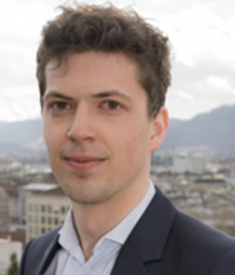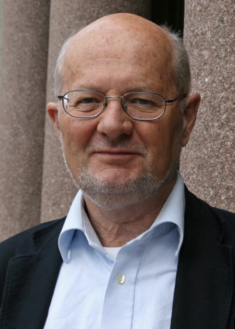Introduction
Science, technology, and innovation (STI) are closely linked and transversal topics that concern multiple ministries and agencies within a government. As such, effective STI policymaking, requires a broad, holistic view of innovation support, integrating and coordinating relevant policies and support mechanisms across all relevant levels and stakeholders. At the first virtual IPO policy dialogue, held on the 30th of September 2021, Eastern Europe and South Caucasus (EESC) regional stakeholders, UNECE experts, and international partner organization representatives discussed innovation policy coordination tools and methods. The full recording of the meeting is available here.
While most EESC countries see innovation as the remit of research and development policy, this constrained focus fails to address the impact of a broader policy environment on innovation and development. As emerged from the discussion, an approach cutting across different policy areas, such as research, education, industry, and innovation is necessary to promote innovation-led growth in the region. This holistic view on innovation policy, namely integrating all public actions that influence or may influence innovation processes (see more on Professor Edquist’s definition of the concept here), will allow UNECE member states in the sub-region to align synergies in some areas while avoiding duplication of efforts in others. Such measures would further enable regional policymakers to tackle broader challenges such as the transition to the circular economy and the fourth industrial revolution. As discussed during the meeting, EESC countries should reconsider their approach to innovation policymaking and explore options of setting up innovation coordination structures.
Central points from the discussion
With a specific focus on innovation coordination mechanisms that could promote innovation through policy alignment, the first IPO policy dialogue covered various practical issues regarding innovation support in transition economies. As various models of such coordination mechanisms exist, selecting the right approach for the national context is essential
To discuss innovation policy coordination opportunities in EESC countries and international practices of innovation policy councils, the UNECE Secretariat invited two international experts on the topics:
- Mr. Dmitry Plekhanov, a research associate at ETH Zürich in innovation policy and digital transformation and UNECE consultant, outlined trends, challenges, and opportunities for innovation policy coordination in the EESC sub-region based on findings of the first Sub-regional Innovation Policy Outlook (2020).
- Professor Charles Edquist, a co-founder of the Centre for Innovation, Research and Competence in the Learning Economy (CIRCLE) at Lund University and a leading expert in the field of national innovation systems, provided an overview of the functioning of innovation policy councils for strengthened policy coordination. Arguing for the separation of innovation councils from other research and development bodies, Professor Edquist discussed the experience of the Swedish Innovation Policy Council in promoting innovation-led growth in the country.
The expert presentations were followed by a brief dialogue where regional stakeholders reflected on their countries’ experiences in policy coordination, establishing research and coordination councils, and managing inter-ministerial working groups.
Speaker Biographies
-
Mr. Dmitry Plekhanov
-

Research Associate at ETH Züeich and a Consultant at the Innovative Policies Development Section, Economic Cooperation and Trade Division, UNECE
Mr. Plekhanov is an expert in innovation policy and the digital transformation. Previously, Mr. Plekhanov has worked on innovation at the OECD, UNECE, UN ESCAP and the Institute for Statistical Studies and Economics of Knowledge (ISSEK). Currently, he holds a position of research associate at ETH Zürich examining productivity-enhancing effects of ICT investments, and patterns of technology diffusion among frontier and laggard firms. Mr. Plekhanov is an author and co-author of multiple book chapters and working papers, including, but not limited to the OECD STI Outlook 2018 and the UNECE Innovation Policy Outlook 2020. Results of Mr. Plekhanov’s work on innovation and the digital transformation were presented at the UN Committee on Innovation, Competitiveness and Public-Private Partnerships (CICPPP), the OECD Committee for Science and Technology Policy (CSTP), the OECD Working Party of National Experts on Science and Technology Indicators (NESTI), the SPECA Economic Forum, and the 2018 Helsinki Summit of the Small Advanced Economies Initiative.
Learn more about Mr Plekhanov’s work and research: https://mtec.ethz.ch/people/person-detail.MjU0ODYw.TGlzdC8yODE2LC0yMDgyMjgwMDQ4.html
- Prof. Charles Edquist
-

Researcher and Policy Advisor, Centre for Innovation, Research and Competence in the Learning Economy (CIRCLE), Lund University, Sweden
Prof. Edquist works as a researcher and as an advisor to governments, public organizations and firms on issues related to innovation policy and strategy in a wide sense. One example is the Rausing Project on Innovation Processes and Innovation Policies, which addresses theoretical, empirical, and policy-oriented aspects of innovation processes in innovation systems. He is also one of the founders of CIRCLE (Centre for Innovation, Research and Competence in the Learning Economy), one of the largest innovation research centres in Europe, and a leading international centre for research and advice on R&D, innovation, knowledge creation, entrepreneurship, and economic dynamics, where he served as a director for seven years (2004-2011).
Since 2003, Prof. Edquist is the Holder of the Ruben Rausing Chair in Innovation Research at CIRCLE and has previously held a Chair at the University of Linköping. In 2011-2012 he was a Member of The Research Policy Advisory Committee to the Swedish Government (Forskningsberedningen), chaired by Jan Björklund, Minister for Education and Deputy Prime Minister and in 2015 – 2019 a member of the Swedish National Innovation Council (NIC, Nationella innovationsrådet) which is chaired by the Prime Minister, Stefan Löfven. He has experience collaborating with numerous international organizations such as OECD, UNIDO, EU, UNCTAD, ILO, UNDP, UNESCO, Swedish organizations such as the Ministry of Industries, NUTEK, and VINNOVA and firms such as Astra-Zeneca, SAAB Aerospace, Volvo Trucks and SWECO. He is one of the most cited innovation researchers and received the award for the best paper for “Competence Building: A Systemic Approach to Innovation Policy” at the Atlanta Conference of Science & Innovation Policy, Georgia, USA, 26-28 September 2013.
Learn more about Professor Edquist’s work and research: https://charlesedquist.com
Speaker Presentations
Dmitry Plekhanov
In his presentation, Mr. Plekhanov provided an assessment of innovation policy coordination mechanisms present in EESC countries, based on the findings of UNECE’s IPO reports. National Innovation Systems in the EESC region struggle to reach an alignment between different government authorities dealing with STI policy. The divisions between competencies and responsibilities of the different government bodies are both horizontal and vertical. On the one hand, horizontal divisions amongst ministries and sectors lead to duplication of functions and responsibilities and fragmentation of efforts and resources. On the other hand, vertical divisions between national-level authorities and sub-national government bodies create insufficiently low participation of local policymakers in innovation policies.
To address these challenges in policy coordination, some EESC governments have recently established national research and innovation councils with representatives from relevant ministries, academia, business communities tasked with coordinating policy efforts across policy areas (for example, Georgia’s Innovation and Technology Agency, also known as GITA, was established in 2014). Yet, such initiatives are not yet fully effective and face various challenges including over-bureaucratisation, lack of clear mandate, insufficient operational support, and limited support from high-level officials as a result, while some councils struggle to meet regularly, others are not yet operational. Furthermore, innovation policy initiatives are still largely developed without systematic consultation with the business sector.
According to Mr. Plekhanov, the key priority areas in innovation policy coordination should include:
- Establishing mechanisms to ensure implementation of innovation policy initiatives, including fiscal allocation.
- Identifying means to resolve conflicts related to innovation policy among government authorities.
- Balancing policy consistency with flexibility to respond to emerging constraints and opportunities.
- Reaching synergies across national strategies on science, technology, innovation and entrepreneurship
Professor Edquist
Examining the different approaches to conceptualising innovation processes, Professor Edquist advocated for a holistic view on innovation policy. The two main innovation paradigms are the linear and the innovation systems approach.
- The classical view sees innovation as linear, consistent, and supply-push. This so-called linear model of innovation stressed research as the main determinant of innovation; in line with the paradigm, innovation progresses from research to development to creation of new products and economic growth in a linear, step-by-step manner. In practice, however, research does not automatically translate into innovation. A myriad of other factors and forces, most notably innovation policies and systems, need to be in place to translate research into practice.
- The innovation systems approach, popularised in the 1990s, challenges the linear model redefining innovation creation as a supply-demand process dependent on the system of innovation determinants (e.g., education, R&D, entrepreneurship, institutions, financing, etc.). While policy is not seen as a separate determinant, it permeates all other categories making it a central factor for fostering innovation.
While the Innovation Systems Approach has gained considerable popularity in academia and research, policymakers still operate from the point of view of the outdated linear model. This approach which views innovation as automatic and natural, leaves innovation policy instruments underdeveloped and dispersed.
The example of Sweden, a country with a holistic approach to innovation policy, illustrates how adopting a broader perspective on policy areas that feed into strengthening innovation in a country will be essential to foster more efficient policy cooperation and fully exploit the potential for innovation-led growth.
Distinguishing innovation policy from research policy, Sweden has established separate councils for the two areas - Sweden’s Research Policy Council and The Swedish National Innovation Council. Unlike the more traditional research and innovation combination councils which are concerned primarily with research and science promotion, Sweden’s Innovation Council focus on innovation promotion while working across multiple government departments. As such, innovation councils depart from the linear perspective on innovation as a direct consequence of research and adopt a holistic approach focused on building a favourable environment for innovation-led growth.
While EESC countries should consider various policy coordination mechanisms, adopting the innovation systems approach and embracing the need for holistic innovation policy is essential to fostering development.
Stakeholder discussion highlights
The open discussion section of the first IPO dialogue centred around the topics covered by the two experts and the general theme of policy coordination. Regional stakeholders, notably from Ukraine and Belarus, reflected on Sweden’s experience of establishing a separate innovation council. The representative from Belarus emphasized that declaring innovation a national priority or establishing new coordination councils is not enough to promote real change. Countries should first change their perspective on innovation and approach policymaking in the area with open-mindedness and willingness to experiment. Emphasizing the importance of innovation councils within the EESC region, the representative from Ukraine then highlighted the flaws in Ukraine 's current science-oriented linear approach to innovation.
The central question that had emerged from the discussion was the degree of the transferability of Sweden’s model of innovation policy coordination. Considering the different institutional and economic contexts of the EESC states, countries might need to tailor their approach to innovation to their individual circumstances.

